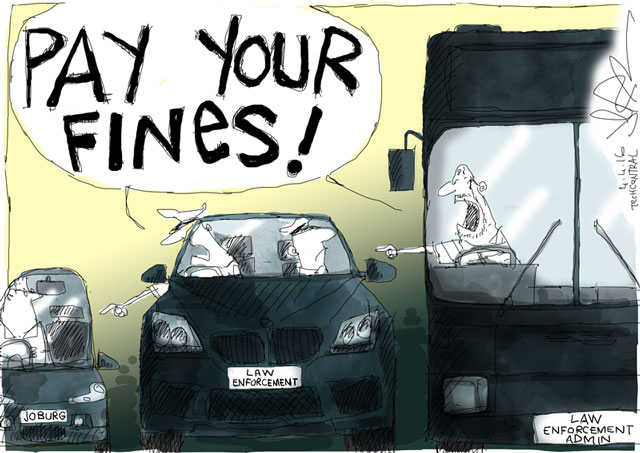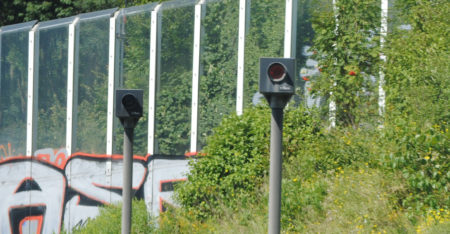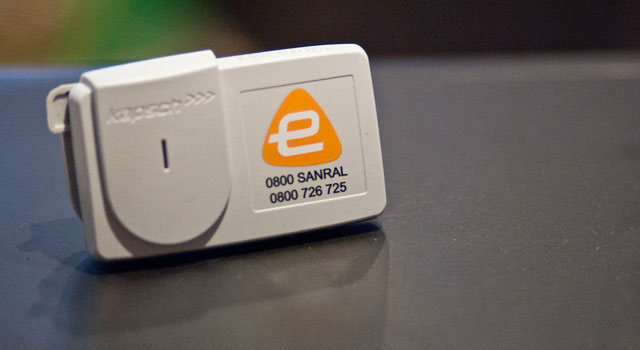
Justice Project South Africa on Monday filed papers in the high court in Johannesburg in a bid to have all notices in terms of the Administrative Adjudication of Road Traffic Offences (Aarto) Act served on motorists through the Post Office’s secure mail service cancelled and money paid in connection with such notices refunded.
This follows a long dispute between the Justice Project and the Road Traffic Infringement Agency (RTIA) about the difference, if any, between secure mail and registered mail.
If successful, the application could see millions of traffic fines in Johannesburg and Tshwane cancelled and motorists who paid such fines refunded. The Aarto Act is only in force in those two metros. Plans to roll it out countrywide on 1 April this year were shelved.
The act provides that traffic infringement notices (fines) and related documents be served either in person or by registered mail. The bulk of the notices served by mail relate to enforcement of speed limits by camera.
Justice Project South Africa alleges that RTIA, which is tasked with administering the act, and Johannesburg (JMPD) and Tshwane Metropolitan Police Departments (TMPD) as issuing authorities, are knowingly using the Post Office’s secure mail and not registered mail to serve Aarto notices.
The organisation explains in detail that the two systems differ materially and that the use of secure mail results in severe prejudice to alleged infringers.
According to Justice Project South Africa chairman Howard Dembovsky’s affidavit, the notifications to alert motorists to the fact that Aarto notices are available for collection at their Post Office branch are system-generated at a central location and sent by normal land-based mail in the case of secure mail. In the case of registered mail, the notices are manually generated at the Post Office branch where the notice is ready for collection and delivered directly to the alleged infringer’s postal address. It never enters the normal postal system.
Dembovsky argues that the use of normal mail to deliver secure mail notifications results in an inability to track the delivery of the notification and in fact regularly results in the notifications not being delivered. The alleged infringer is then unaware of the Aarto notice and as a result forfeits the opportunity to exercise his or her rights, including the right to pay the fine within a limited period and qualify for 50% discount and to nominate someone else who was driving the vehicle at the time of the alleged infringement.

Businesses, with people other than the owner driving the vehicles, are particularly prejudiced against if they forfeit the opportunity to nominate the actual driver, Dembovsky says.
He says: “It is submitted that the service of documents required to be served in terms of the Aarto Act is fundamental to the operation of the entire act which has strict timeframes for processes, and that in the absence of proper service, the entire process falls to pieces. When this happens, the alleged infringer is effectively paralysed from pursuing many of the various prescribed “options” available to him or her in terms of the Aarto Act within the timeframes stipulated in the Aarto Act.”
RTIA did not respond to questions about the issue, but Justice Project South Africa said the organisation as well as JMPD and TMPD knowingly persist in using secure mail instead of registered mail. RTIA earlier issued a statement to the effect that there is no difference between the two systems, Dembovsky says.
He says he and Justice Project South Africa are both mindful of the fact that granting the application might be interpreted as a setback for law enforcement. He argues that RTIA and other respondents brought it upon themselves. He says: “This could have been avoided entirely by the respondents had they simply complied with the provisions of the Aarto Act from the outset, instead of choosing to experiment with ways in which to circumvent them.”
Dembovsky said he fully expects RTIA to oppose the application and that the case might be heard before the third quarter of this year.
- This piece was originally published on Moneyweb and is used here with permission




